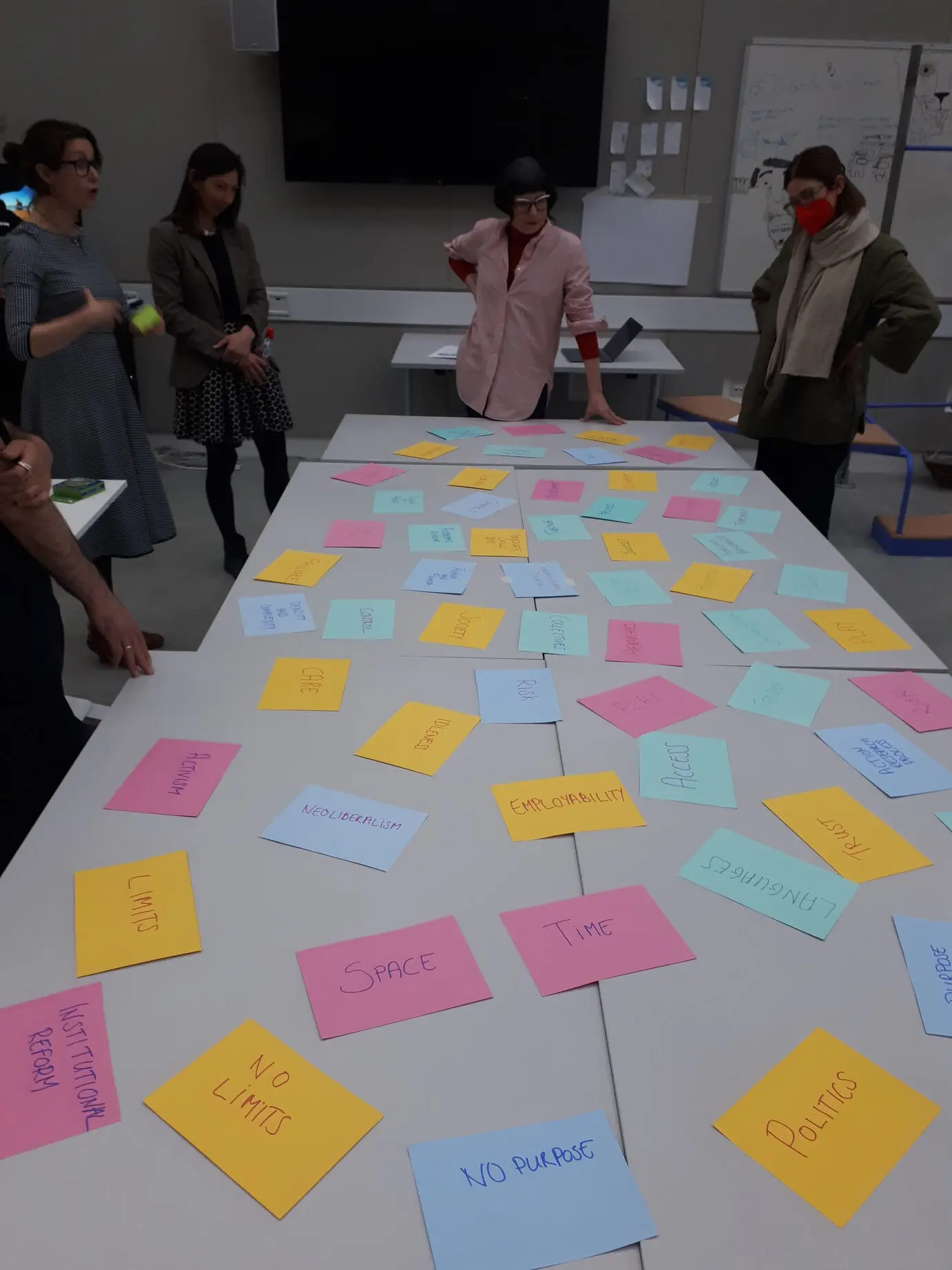
PR1: Mapping Aesthetics in Technological Education
Mapping Aesthetics in Technological Education
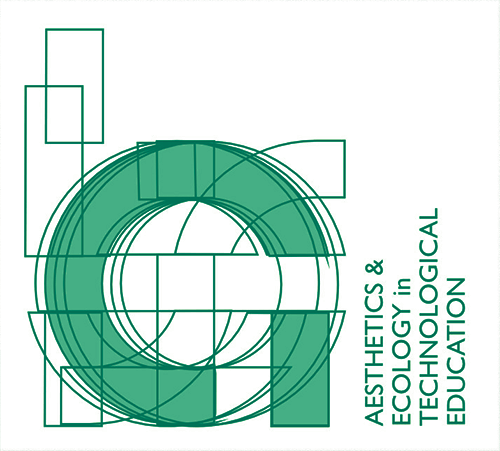
The first Project Result (PR1) set out to produce a systematic mapping and inventory of the role of aesthetics in technological project-based education, to summarise this complex information in meaningful and accessible ways in an online resource. With this knowledge base will acting as open resource to inform thinking on the connection between design of technological artefacts and processes and sustainability, and provide evidence of why an enhanced aesthetics is necessary in technological education. This PR’s findings input into all subsequent work packages.
The tasks of the PR were:
To develop a state-of-the-art bibliography and literature review.
To Identify, inventory current aesthetics methods and practice in technological education.
To develop a definition of an Aesthetics of Care with Ecology in relation to design education.
To develop a midpoint seminar/webinar to discuss and summarise the results of the research so far, to reflect on findings and connect stakeholders to the research.
Present the process and findings of the project through an online resource
Aesthetics of Care with Ecology Definition
Aesthetics of Care with Ecology in Technological Education is a process. Its aim is ethically responsible action. The process is informed/activated by sensory experience, and shaped by knowledges and aesthetic consciousness. This entails a caring for ourselves, others and the planet
Developing the Definition
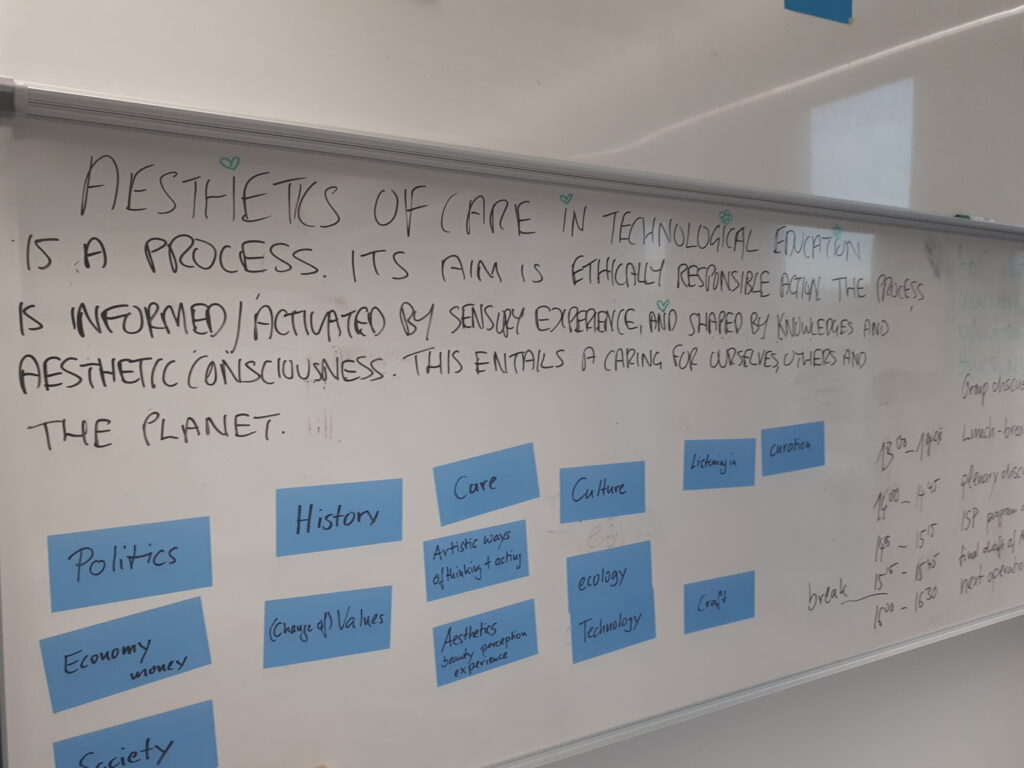
From the outset of the project the definition of an aesthetics of care with ecology was key for this first task of the project. The definition was developed primarily by the PR1 team in consultation with the entire consortium. We knew that the definition should be sufficiently broad to encompass the range of contexts that the project set out to address. This was reflected in the disciplinary mix of the team with artists, architects, philosophers, urbanists, and engineers.
The definition was developed through a series of PR team meetings and meetings for the entire project consortium. Pivotal moments in this process were the transdisciplinary methods mapping workshop organised by colleagues from the Erasmus+ project RASL (Exploring Transdisciplinary Education in Arts & Sciences) at the second transnational project meeting in Dublin in May 2022, and at the third transnational project meeting in Darmstadt in November 2022.
This process is detailed in PR1’s Aesthetics of Care and Ecology summary document
Transdisciplinary Methods workshop
Locating ideas of care and their relation to aesthetics, technology, and the formation of students across disciplines was identified as a clear context for the project at the project kick off meeting.
One of the most useful definitions of care for our purposes comes from Joan Tronto and Bernice Fischer (1990) who characterise care as a “species of activity that includes everything we do to maintain, contain, and repair our ‘world’ so that we can live in it as well as possible. That world includes our bodies, ourselves, and our environment, all of which we seek to interweave in a complex, life-sustaining web.” (Fisher & Tronto, 1990, p. 40) In this, we can see the seeds of references to questions of technology, sustainability, relationality, and circular economy to be addressed in the project. (see Aesthetics of Care & Ecology for an extended discussion)
The transdisciplinary nature of these problems became apparent and at our second TPM meeting in Dublin we invited Renée Turner (Willem De Kooning Academy) and Sinead McDonald (TU Dublin) to lead a workshop on their Tuning Transdisciplinary Education methodology. The methodology was developed as part of the Erasmus+ funded RASL project (2019-2022). TU Dublin was a consortium member, with AesThiCo coordinator Conor McGarrigle leading a work package.
The workshop involved an active mapping of concepts and understandings, their entanglements, and implications for transdisciplinary education, which as María Puig de la Bellacasa writes, is care work, that “requires attention and fine-tuning to the temporal rhythms of an “other” and to the specific relations that are being woven together.” 1
1 Quoted in Tuning Transdisciplinary Education (RASL 2022)
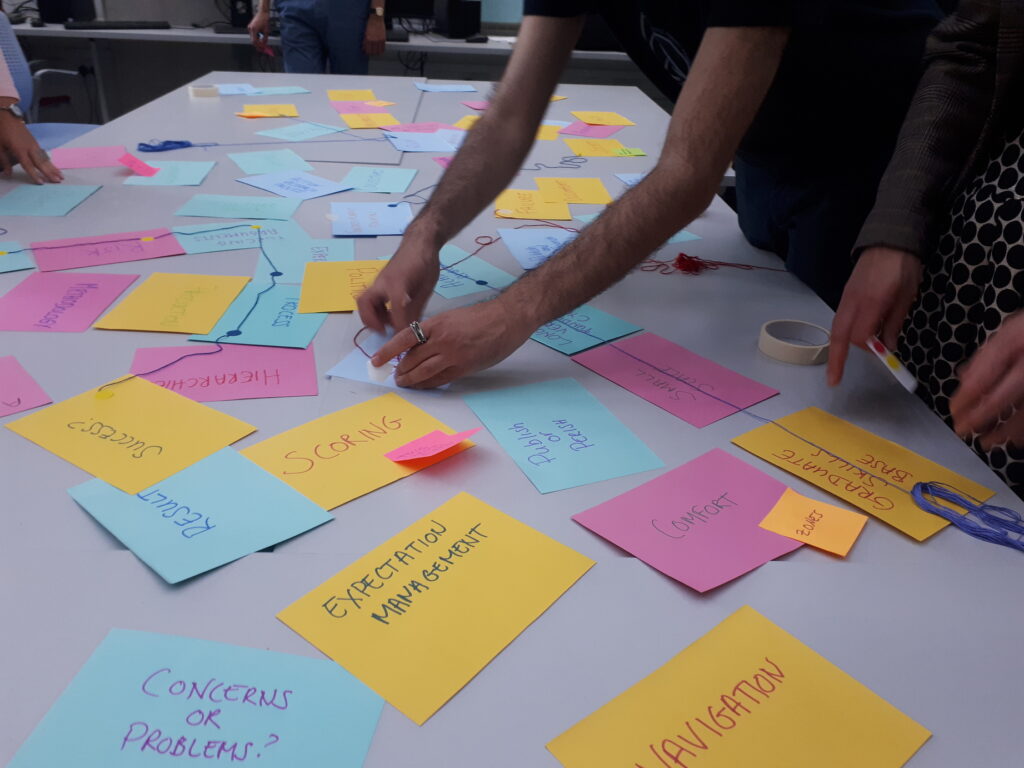
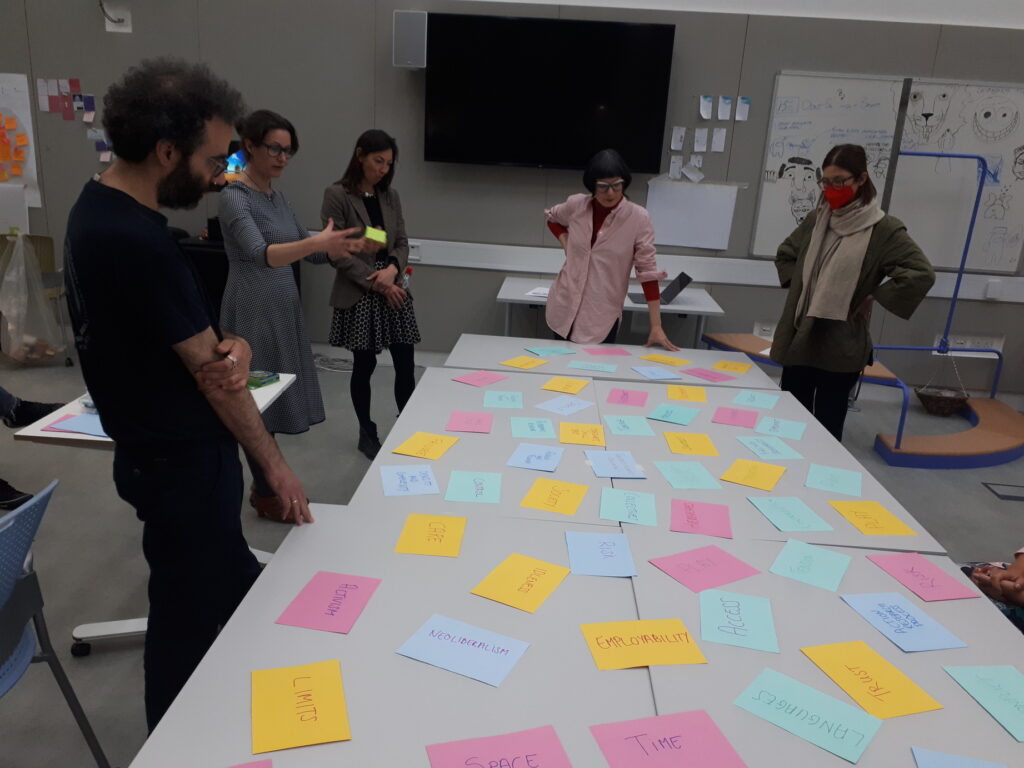
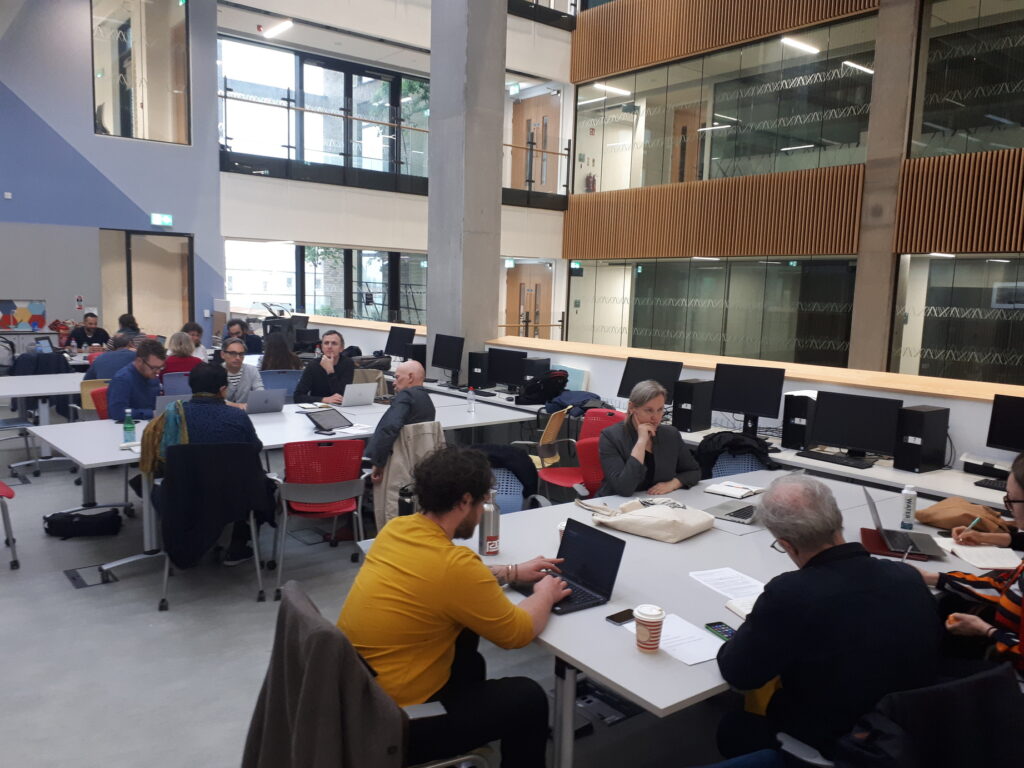
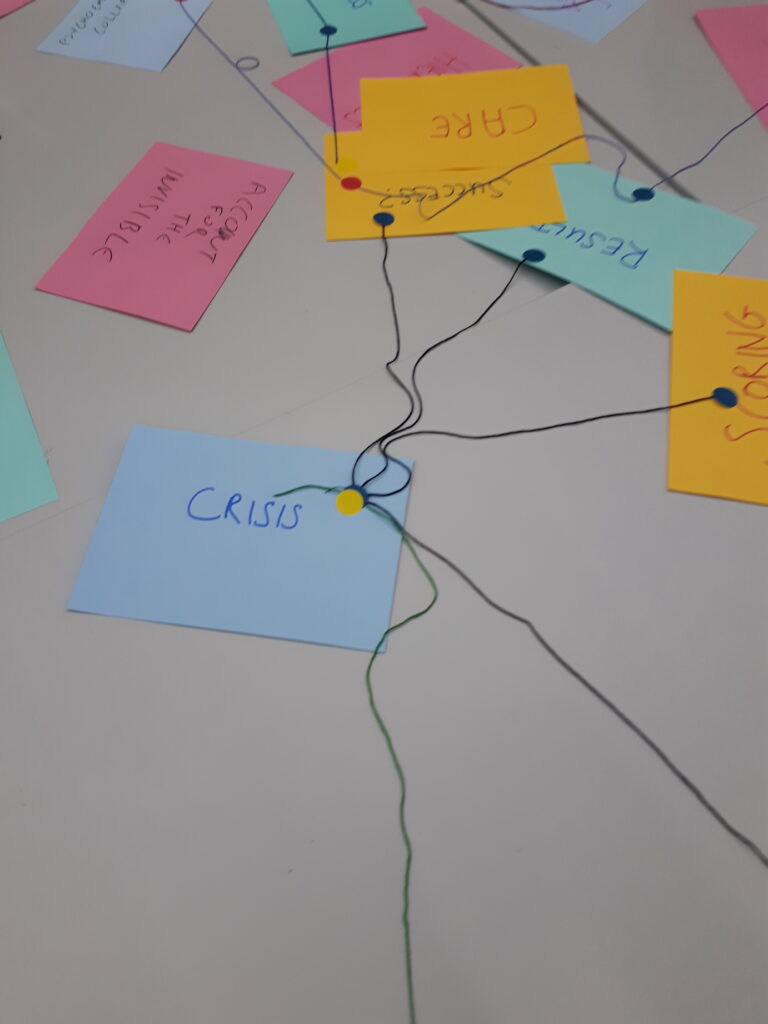
Exploring the Aesthetics of Care Seminar
9 February 2024
Interim findings of the work package were presented to the public at the PR’s midpoint seminar which took place on February 9th 2024.
The speakers were:
Brenda Duggan (TU Dublin), Introduction to AesTHiCo; Aesthetics and Ecology in Technological Education
Session 1 Chair, Martin McCabe (TU Dublin)
Antonio Fornet Vivancos (Universidad Politécnica de Cartagena), An Aesthetics of Care for the Best Period of Human History
Connell Vaughan & Mick O’Hara (TU Dublin), Art Beyond Saving? An Aesthetics of Care in the Artworld
Klaus Schüller (Hochschule Darmstadt), Media Aesthetic Education
Session 2 Chair Yoana Pavlova (TU Sofia)
Josefina García, Elena García (Universidad Politécnica de Cartagena), The City Doesn’t Love Me
Santiago Perez (Université de Technologie de Troyes), The Role of Care in a Circular Society: Aesthetics of Care of Circular Economies
Ioana Cecălășan, Nicoleta Ilieș, Ioana Moldovan, Silivan Moldovan (Universitatea Tehnică din Cluj-Napoca), Exploring the Aesthetics of Care in Contemporary Architectural Design
Closing Remarks Marinos Koutsomichalis (Cyprus University of Technology)
Mapping Aesthetics of Care
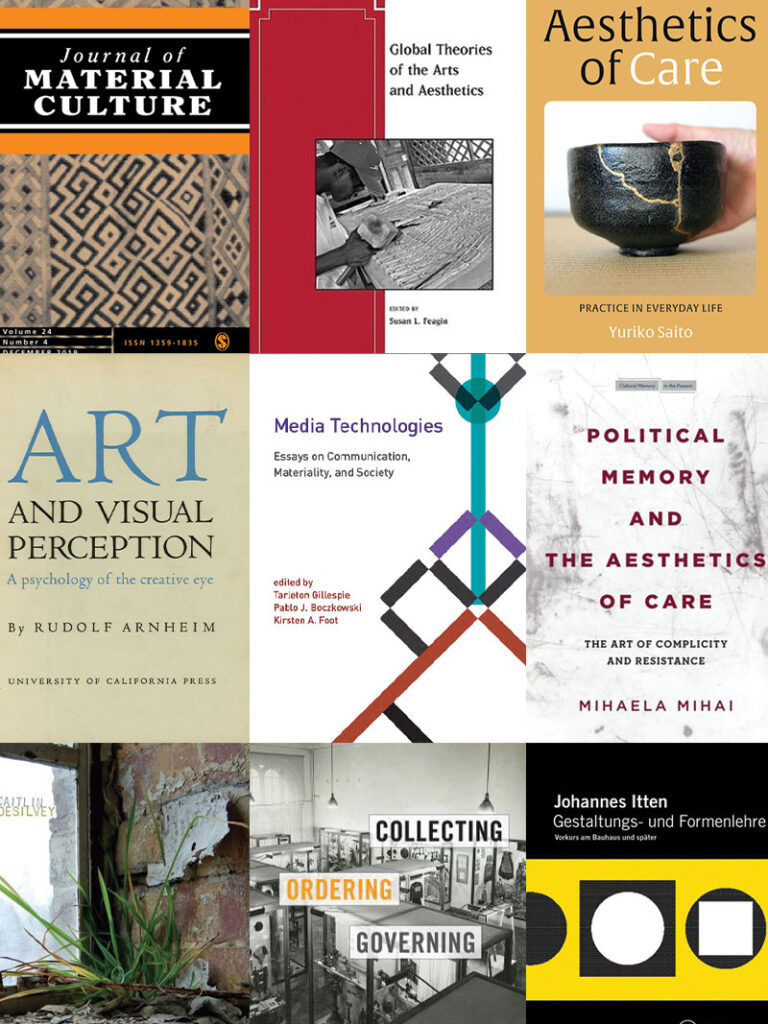
Mapping Aesthetics in Technological Education began with a systematic mapping and inventory of the role of aesthetics in technological project-based education. The aim to set the scene by identifying and analysing current practices and challenges alongside emerging theoretical positions,
Through a process of testing against real world scenarios this work package produced a systematic mapping and inventory of the role of aesthetics in technological education, in order to summarise this complex topic in an accessible fashion.
The resulting output consists of a number of short reviews of key texts by consortium members and a complete bibliography of all texts reviewed. These texts establish a number of positions and voices that influenced Aesthico’s development. The reviews consider the texts in the light of the the project’s development and inform the main intellectual outputs of the project.
